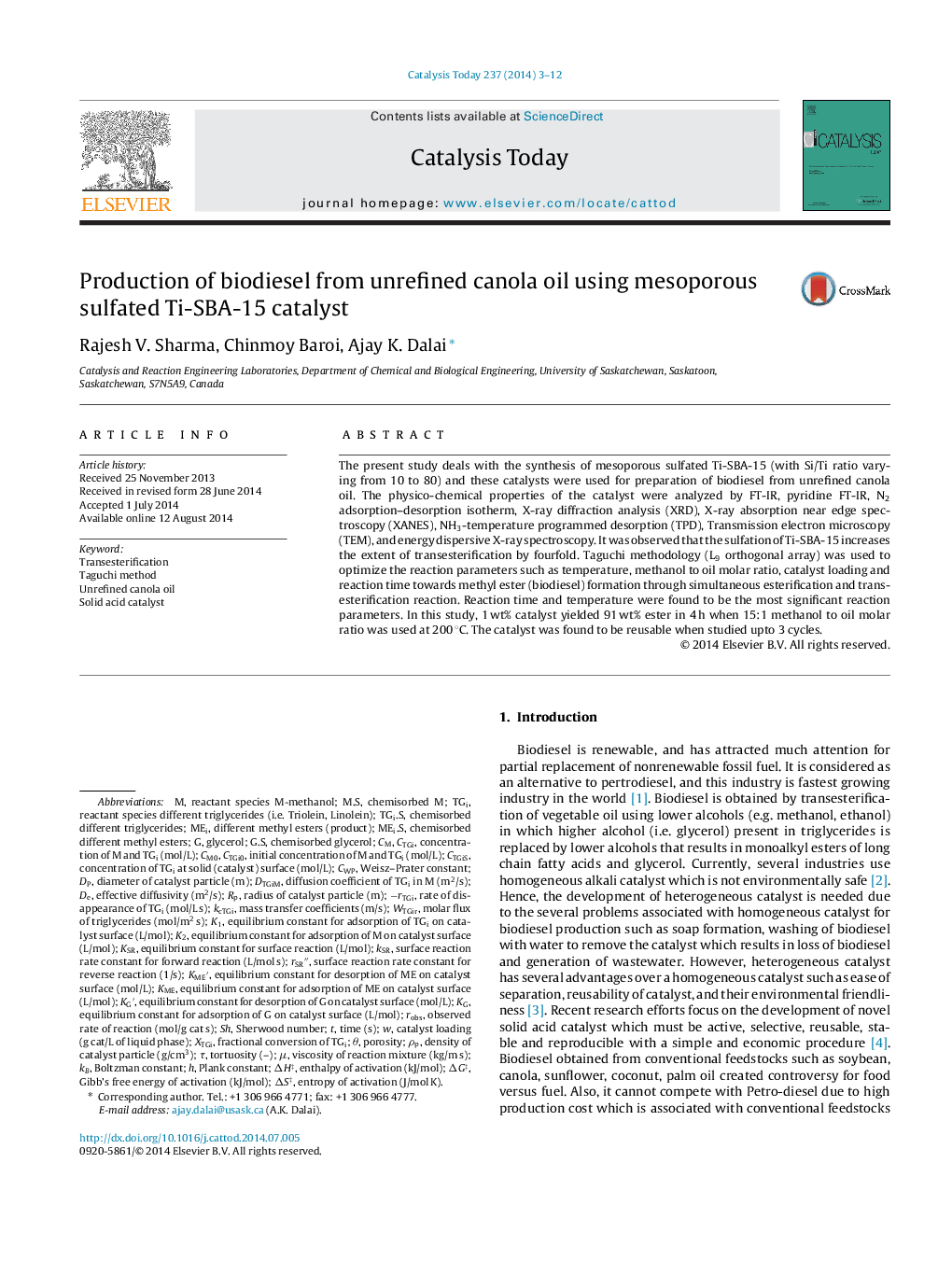| Article ID | Journal | Published Year | Pages | File Type |
|---|---|---|---|---|
| 53970 | Catalysis Today | 2014 | 10 Pages |
•Preparation of biodiesel from unrefined canola oil by using heterogeneous catalyst.•Fourfold increase in activity of Ti-SBA-15 by chlorosulfonic acid treatment.•Taguchi methodology used to understand the contribution of the reaction parameters.•Catalyst is reusable.
The present study deals with the synthesis of mesoporous sulfated Ti-SBA-15 (with Si/Ti ratio varying from 10 to 80) and these catalysts were used for preparation of biodiesel from unrefined canola oil. The physico-chemical properties of the catalyst were analyzed by FT-IR, pyridine FT-IR, N2 adsorption–desorption isotherm, X-ray diffraction analysis (XRD), X-ray absorption near edge spectroscopy (XANES), NH3-temperature programmed desorption (TPD), Transmission electron microscopy (TEM), and energy dispersive X-ray spectroscopy. It was observed that the sulfation of Ti-SBA-15 increases the extent of transesterification by fourfold. Taguchi methodology (L9 orthogonal array) was used to optimize the reaction parameters such as temperature, methanol to oil molar ratio, catalyst loading and reaction time towards methyl ester (biodiesel) formation through simultaneous esterification and transesterification reaction. Reaction time and temperature were found to be the most significant reaction parameters. In this study, 1 wt% catalyst yielded 91 wt% ester in 4 h when 15:1 methanol to oil molar ratio was used at 200 °C. The catalyst was found to be reusable when studied upto 3 cycles.
Graphical abstractFigure optionsDownload full-size imageDownload high-quality image (398 K)Download as PowerPoint slide
